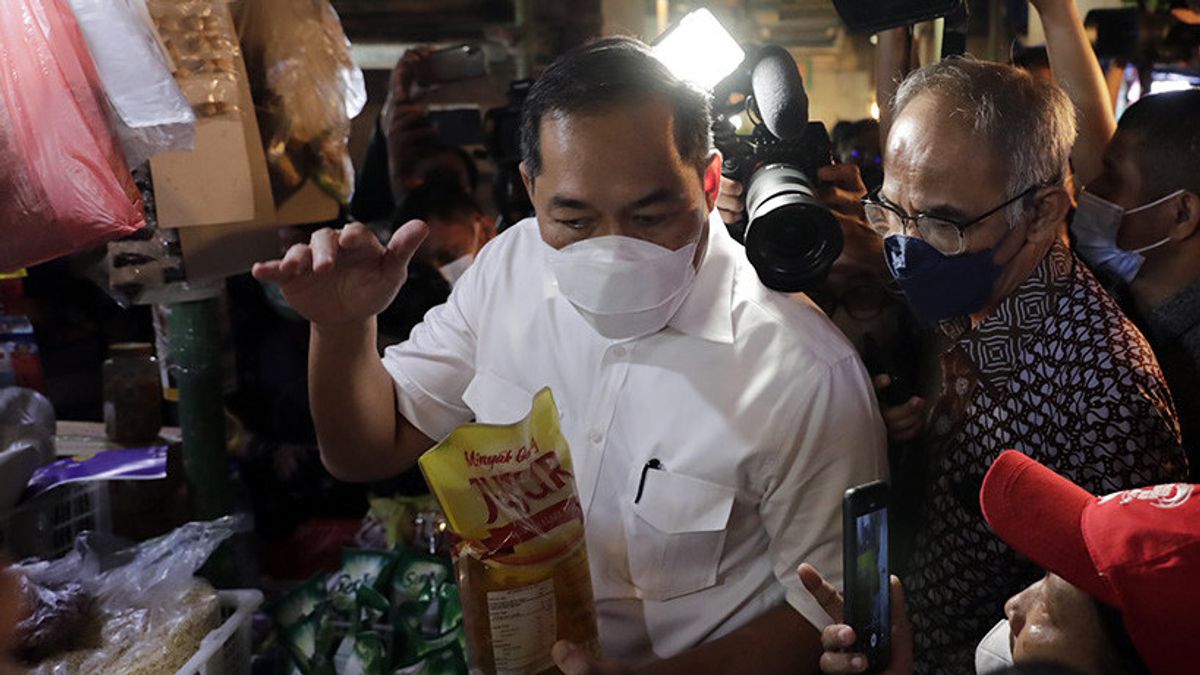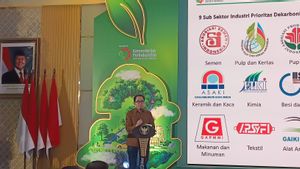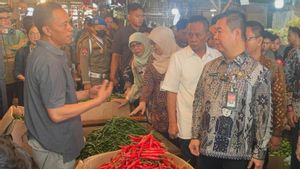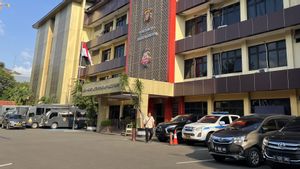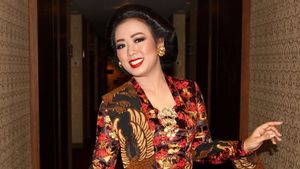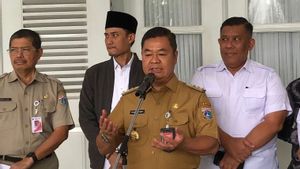JAKARTA - The unresolved cooking oil problem has created a perception that the government, in this case the Minister of Trade Muhammad Lutfi, is inferior to palm oil entrepreneurs. Moreover, various policies have been implemented one after another.
Responding to the accusations, Lutfi emphasized that the government would not give up on solving the current food commodity problems, particularly related to cooking oil.
He denied that various policies that have not been able to solve the cooking oil problem are considered as evidence of the government's defeat against cooking oil entrepreneurs.
"There is nothing that we lose to entrepreneurs. I guarantee that I cannot be regulated by entrepreneurs. But we are struggling to be able to resolve this distribution problem," he said in a meeting with Commission VI of the DPR, quoted Friday, March 18.
Fiery, Lutfi said that the government is not inferior to businessmen. Evidence that the government is not inferior to entrepreneurs is through increased export tariffs to maintain domestic supply of crude palm oil (CPO) and finance bulk cooking oil subsidies through the Highest Retail Price (HET) of Rp. 14,000 per liter.
For your information, the bulk cooking oil subsidy comes from the Palm Oil Plantation Fund Management Agency (BPDP-KS). The source of funds for BPDP-KS comes from CPO export tariffs.
The government, said Lutfi, will increase the export tariff from US$ 375 per ton to US$ 575 per ton. This step was taken to increase the capacity of BPDP-KS. According to Lutfi, the upper limit of the export DP will be increased from US$1,000 per ton to US$1,500 per tonne.
"Every time they increase by 50 dollars, they have to pay 20 dollars. If the price goes up, they pay more. So that's what we are doing," he said.
"The value is 120 per ton, they have to pay 200 dollars per ton, so when multiplied by 34 million, it means this value is equivalent to 7 billion dollars. So it is equal to Rp. 110 trillion. What we are doing is for the welfare of the Indonesian people," he continued.
Furthermore, Lutfi said the reason why the domestic market obligation (DMO) policy was no longer enforced. He said, this is so that CPO entrepreneurs choose to supply domestically rather than abroad. Moreover, considering that export duties were increased.
"Once we charge 575 dollars, we don't need DMO anymore because why? Because selling domestically will be much more profitable than exporting," he said.
Complained by businessmenAfter the plan to increase export tariffs reached the ears of entrepreneurs, Lutfi admitted that he had received a complaint. He said, entrepreneurs complained about the high cost to export CPO abroad.
"They have called me. They said 'how come the cost is so high'. In my heart, 'don't obey, this is what we are doing for the Indonesian people,' he said.
According to Lutfi, with the increase in export tariffs, the government can cut the profits to be made by the government through the levy from 1,000 flats to 1,500 flats.
"So they are cut a lot. For them this is something difficult too. Not something fun. But we make this so that it is heavy and easy to carry, "he said.
Previously, member of Commission VI of the DPR RI, Amin Ak, assessed that the government's decision to hand over the price of cooking oil to the market mechanism did not only show the failure to control prices and supply, but also showed that the government was weak in front of the food cartels.
According to Amin, the government was unable to enforce its own rules and then succumbed to the will of the food cartels after the cooking oil drama that had harmed the people for the past six months.
Furthermore, Amin assessed that there is no guarantee that there will be no shortage of bulk cooking oil in traditional markets, reflecting on the experience related to the government's inability to control prices and supply so far.
"The government's prestige is falling, and this could set a bad precedent that cartels can easily dictate the food market," Amin said in a written statement received by VOI, Thursday, March 17.
The English, Chinese, Japanese, Arabic, and French versions are automatically generated by the AI. So there may still be inaccuracies in translating, please always see Indonesian as our main language. (system supported by DigitalSiber.id)
